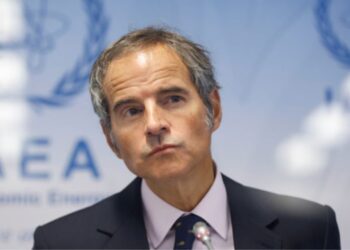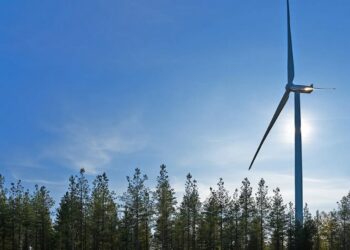“No one can stop this progress”: renewable energy will continue to grow, ignoring the difficulties, but must go faster for the world to meet its climate goals, the head of the International Renewable Energy Agency told AFP.
The world is caught in an energy crisis since the invasion of Ukraine by Russia and some countries, especially in Europe, are doing everything to ensure their supply of oil and especially gas.
“In the short term this will have an impact,” acknowledges Francesco La Camera, the director general of IRENA, in an interview with AFP at COP27 on climate in Egypt.
“But in the medium and long term, there is no other way but to accelerate decarbonization. Because ultimately renewables are not only good for the climate, employment, GDP, but are a real way to ensure energy independence,” he says.
Nato Secretary General Jens Stoltenberg also highlighted this new strategic aspect on Tuesday, stressing that the transition to renewables is “good for our security”.
For Francesco La Camera, the United States is not in danger of going backwards in its choice of clean energies, reinforced lately by the vast investment plan of President Joe Biden, who has just faced the mid-term elections.
“During the previous (Trump) administration, coal plants were already closing in the United States,” the Italian noted.
“The market is the driver. The market is already saying clearly that we are going to a system based on renewables and complemented by hydrogen, mostly green. No one can stop this progress,” he predicted.
“The question is not where we are going but at what speed and scale,” he adds however IRENA calculated in a report published for COP27 that the energy transition was not on track to meet the Paris agreement’s goals of containing warming well below +2°C, if possible at +1.5°C compared to the pre-industrial era.
“The numbers say we need to double the ambition between now and 2030″, La Camera points out.
Countries around the world are targeting 5.4 terawatts (TW) of installed renewable electricity capacity by this time, which is only half of the 10.8 TW needed to meet climate commitments.
Phenomenal potential
Africa, where the COP is being held this year, is particularly behind in terms of what it could achieve, especially with its access to the sun.
Investment in renewables there was lagging at an 11-year low in 2021, according to a report by BloombergNEF (BNEF). The continent has captured only 0.6% of global investment in the sector.
“Africa has phenomenal potential. They can produce 1,000 times the electricity and energy they need. This continent is an incredible powerhouse,” enthuses the IRENA boss.
“But we need to rethink the way cooperation works. Africa cannot develop, move towards a clean energy system, without the right physical and legal infrastructure,” he adds.
He also warns against the temptation to rely on new fossil fuel projects for development, a dream cherished by several countries such as Senegal and the Democratic Republic of Congo.
“It’s in the continent’s interest to jump on the new bandwagon” rather than “getting stuck in old technologies,” La Camera argues.
According to him, Africa could benefit from millions of new jobs and accelerated growth.
“But this can only be done if developed countries are willing to facilitate, support, work with Africans to make this possible,” he concludes.






